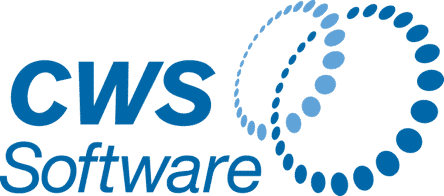Is Benchmark Salary Data the Best Place to Begin Your Compensation Management Process?

When it comes to employee pay raises, companies tend to rely on market data and salary surveys to chalk out effective strategies. In today’s digital era, however, many businesses are realizing there are advantages in more advanced approaches to compensation management.
As companies seek new ways to manage payroll expenditures and compensation plans, compensation planning systems have emerged as a tremendously effective option. After all, the overarching goal of any compensation planning cycle is to bring order to a process that has great potential for wasting time, money, and resources. Its primary purpose is to ensure that you provide all employees with fair and competitive base pay by implementing regulations and salary structures evenly.
Regardless of size or scale, any organization can achieve the fundamental goals of compensation—to focus, attract, retain, and motivate a high-performing workforce—by thoughtfully implementing a compensation planning system also referred to as a salary administration system.
More often than not, companies plan pay raises based on market data, or data gathered based on popular market pricing in the relevant sector. You might conduct compensation market data analysis based on salary surveys to compare your team members’ salaries with the competition and provide raises accordingly. This time-consuming and error-prone process can be better (and more efficiently) managed by a best-of-breed salary administration system.
How a Compensation Planning System Can Outperform Market Data
HR professionals know that managing the annual comp cycle with a spreadsheet-based method or outdated homegrown systems can be overwhelming. And there’s no reason for it, when there’s a far better way that is simpler, faster, more precise, and more compliant.
While most companies have some sort of formal compensation plan with grades and ranges obtained from compensation market data, many are realizing they need more. Some have turned to human capital management (HCM) systems which can yield good results, but only temporarily. HCM systems rarely provide the required functionality for handling the complexity of compensation and incentive programs over the longer term—especially as salary administration and compensation management continue to become more intricate.
This is where a compensation planning system can really shine.
A well-designed salary administration system and compensation management tools can automate guidance, periodic reviews, and update cycles to ensure fair, secure compensation with greater order and efficiency.
The advantages cross all areas of the compensation management process:
Assure accurate, complete calculations
Managers can apply a holistic approach to the merit process while incorporating new information from the salary administration system, helping them make decisions at every stage. This approach leads to more accurate calculations, as a compensation planning system will consider a wide range of inputs and configurations such as bonuses, stock plans, and more. With a clear view of the process and data across your business, there is no need to wait for market data analysis to compute merit guidance.
Eliminate the risk associated with spreadsheets
Spreadsheets can create detrimental situations when multiple users and versions get involved. Managing the crucial compensation management process using spreadsheets rather than a flexible system that supports streamlined workflows can be risky. By contrast, a compensation planning system automates and controls for human error to reduce the risks associated with spreadsheets.
Align budgets and planning
A reliable salary administration system allows you to align employee salary raises with the top-level budget. It’s important to note that while a manager with high performers might go over budget, managers with average or low performers would be more likely to stay within it. A top-of-the-line salary administration system ensures that the overall budget is appropriate when viewed in the context of the entire company. This enables users to budget various job roles and view fair projections of total employee costs.
Provide organization-wide transparency
For businesses that use multiple salary surveys, maintaining many reference points year over year takes time. Additionally, market data overemphasizes each survey data point as representing “the market,” sometimes omitting the possibility that data varies in robustness from market to market. This can affect transparency as well as accuracy. A compensation planning system overcomes this challenge by relying on other metrics such as performance ratings and budgets to determine increases. What’s more, managers and staff members know that decisions are being made in a fair, open environment and recommendations may be modified based on employees’ contributions to the business.
What to Expect in a Salary Administration System
Attaining pay equity can be challenging as new hires, promotions, and internal transfers complicate the view. But a cutting-edge salary administration system can help you overcome these issues. With a multitude of options available, prioritizing what your business needs will help you find the ideal salary administration system.
Look for these capabilities as you consider solutions:
Adaptable budgeting and guidance
A compensation planning system should allow flexible rules to be set up around pay increases. This lessens the impact of personal bias and helps assure that all managers in charge of settling pay increases utilize uniform standards when assessing employees. What’s more, a compensation planning system can support guidelines around budgeting and pay raises to ensure that the total budget and organizational goals remain aligned.
For instance, if a team’s budget is 3% and each member performs above standard, the final guidance could be greater than the amount allocated. Keeping the budget and guidance closely aligned is critical for the performance of the company as a whole. A smart compensation planning system will make it easy to see where the budget and guidance are out of alignment and make adjustments as needed.
Automated compensation analysis tools
Your salary administration system should also offer compensation analysis tools that allow you to combine compensation components, including regular pay as well as merit, bonus, and stock awards. Analysis tools may differ, but the objective should be to gain greater insight and context to help you manage compensation practices and inform decision making. At a minimum, your system should support:
- Pay equity analysis—You should be able to analyze and assess internal pay equity across the organization. Compensation tools can help you identify potential pay gaps, disparities, or bias, and take corrective action to ensure fairness across job roles, levels, or demographic groups.
- Performance assessment—Features that enable your organization to connect compensation to performance metrics should be integral to any compensation management tools you select. This will allow you to gauge team and individual performance, set performance objectives, and assign the right rewards and incentives according to results.
- Cost evaluation—To assist in effectively managing compensation budgets, your solution will require cost analysis features that will help HR and finance personnel simulate pay scenarios, determine the financial impact of changing pay structures, and allocate funds as needed.
Organization-wide benefits of a salary administration system
Not only will compensation management software help managers and HR make informed hiring and compensation planning decisions, an advanced salary administration system can contribute to greater employee engagement, retention, and productivity in key ways:
Enhanced perceptions of equity
Employees today demand equitable pay structures. They need to know that their pay is comparable to other employees performing the same duties, that it is appropriate relative to other employees across other roles, and that it is competitive across the market. Investing in a system that analyzes and demonstrates compensation across the company and industry goes a long way toward showing employees that you take equity seriously.
Improved employee retention
When so many employees are looking for greener pastures, retention of your talent is key. Ensuring that employee incentives are managed in a fair, timely, rules-based manner can contribute to greater satisfaction. Managing these important facets of compensation via a salary administration system removes potential bias and helps assure that employees are rewarded appropriately for their performance.
Streamlined decision making
Allowing first-line supervisors to determine pay increases and bonuses is key for employees to feel that they are being paid equitably. Employees need to see that the person determining their compensation knows them and the work they do. A compensation planning system that involves direct supervisors in submitting guidance can improve worker satisfaction.
Greater assurance of compliance
Expecting HR and managers to keep track of changing legal and regulatory requirements—especially in an organization with multiple locations or remote workers—puts your company at risk. A salary administration system that centralizes updates, and allows different rules for each location can help you easily spot and correct potential compliance hazards such as pay disparities based on gender or other legally protected characteristics.
Take a closer look
Salary administration systems can provide your business with the scaffolding for employee growth, retention, and satisfaction. As employee expectations around transparency and equity continue to evolve, these platforms make it easy to ensure that your raises and incentives are efficient for HR and managers and attractive to your workers. And, if you’re not ready to step away from market data as a guidepost, a good salary administration system can also incorporate market data from any source.
For a full-featured, intuitive system that supports all of the advantages outlined here, consider the TalentComp salary administration system. Built from the ground up with these exact needs in mind, Talent Comp makes it easy to track salaries, reduce pay disparities, and gain the trust of your workforce.
